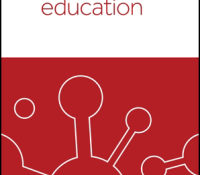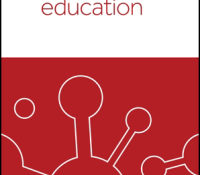tandfonline.com har udgivet en rapport under søgningen “Teacher Education Mathematics”: Abstract Abstract English language teaching (ELT) as a second or foreign language is a worldwide practice for Educational Systems in elementary schools. Educational reforms in Mexico have aimed at addressing English language learning within the elementary schools’ curricula, however, there have been shortcomings when implementing the teaching of English as a Foreign Language (EFL) in all Mexican classrooms. This study was done to explore the possibility of general classroom teachers becoming EFL facilitators. The participants were 15 general classroom teachers with no specialization in ELT, from either a rural school in a Bilingual indigenous community or an urban school in the Mexican State of San Luis Potosí. A mixed-method research approach was employed, which included a socioeconomic questionnaire, an attitude… Continue Reading →
Like this:
Like Loading...
tandfonline.com har udgivet en rapport under søgningen “Teacher Education Mathematics”: ABSTRACT ABSTRACT This paper uses a Māori epistemological approach, to demonstrate why indigenous knowledge systems should be recognised as the ultimate example of interdisciplinary interaction. Over the last 25 years, the library and information professions in New Zealand have become aware of the need to ensure that the full potential of mātauranga Māori is realised. This involves thinking less about ‘Māori studies’, and being more focused on the interaction and integration of the inter-disciplinary components that constitute the totality of mātauranga Māori. Within this context, library and information management institutions are responsible for ensuring that they are able to provide the resources and services required by Māori wishing to draw on knowledge across disciplines, in ways that may ordinarily be seen… Continue Reading →
Like this:
Like Loading...
eric.ed.gov har udgivet: In this quantitative correlational research study, the degree to which a school leader’s culture-based communication style could predict student achievement outcomes in the Hawaii State Assessment (HSA) in reading and math in: (a) schools with a Native Hawaiian mission, and (b) schools without a Native Hawaiian mission, were examined. The population of the study was all 284 K-12 Department of Education schools in Hawaii and publicly funded charter schools. Within this selected population of K-12 schools, 20 schools and corresponding school leaders were selected from Hawaiian-missioned schools, and 20 from Western-missioned schools. Findings include that culture-based communication style of leaders only influences learner reading sores, where school leaders who use engagement culture-based communication style score significantly high than those who have leaders who use other communication styles.… Continue Reading →
Like this:
Like Loading...
tandfonline.com har udgivet en rapport under søgningen “Teacher Education Mathematics”: Abstract Abstract Many educators have sung the praises of Indian Education for All, Montana’s constitutional mandate, and heard the successes of Montana’s Indigenous language revitalization efforts which reverberate around the globe. Teaching Indigenous languages is especially, challenging since there are limited numbers of fluent speakers and scarce resources resulting from harsh education and language policies imposed by the US federal government throughout the nineteenth- and twentieth centuries. Tribal members in Montana spearheaded a unique licensure process for Indigenous language instructors to revitalize and maintain their languages. Language revitalization as a culturally responsive pedagogy strategy is enacted through Class 7 certification, as it is known. It took years of work to assure that the authority rests with the tribal nations, where… Continue Reading →
Like this:
Like Loading...
eric.ed.gov har udgivet: The main purposes of this one-year case study are to create learning environments for indigenous students through culture-based mathematics instructional modules, and what teachers’ responds are in two tribes. The researcher leads sixteen in-service teachers and seven pre-service teachers to enter two indigenous tribes- “Cado” and “Jayama,” and design culture-based math modules for indigenous students of tribal elementary schools. Through five stages of guidance, including “preparation and planning,” “exploration and understanding,” “reading and design,” “comment and revision,” and “practice and reflection,” the participants work together to develop seven sets of culture-based math modules in total. Based on observation, interview, and analysis of related documents, it is shown that the implementation through culture-based mathematics instructional modules could motivate students’ interest in learning math, and enhance their initiatives in… Continue Reading →
Like this:
Like Loading...


